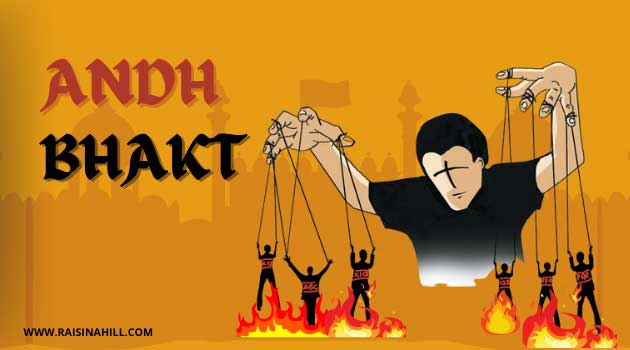A simple Google search of the phrase Andh Bhakt will reveal a pattern where people belonging to different ideologies label each other as Andh Bhakts. The phrase has dominated the recent political discourse and become a part of the vernacular.
One wonders if Andh Bhakt, owing to the popularity of the phrase, will be added to the Oxford English Dictionary in the near future. Words like abba, gulab jamun, jugaad, surya namaskar, and many more are already included in the Dictionary.
These words reflect the diverse cultural and linguistic influences which shape the common usage of English in India. Such highly specific vocabulary does not have a direct English equivalent and is identified as distinctive to Indian English.
The phrase Andh Bhakt is quite popular on social media platforms. What does it actually mean to be an Andh Bhakt? To put it simply it is a person who trusts or follows something blindly. This blind devotion leads to unwavering faith in a particular person or ideology.
Andh Bhakt is so devoted in their worship that s/he ignores all the shortcomings when s/he believes in anything. The person does not accept any flaw in the object of worship and is characterized by an uncritical acceptance of information as the gospel of truth.
Such cult following has been sustained by social media tools like WhatsApp, Facebook, Instagram, and Twitter. Some media channels and print publications also contribute to the formation and propagation of worldviews that entail an immense following.
Words have a way of sticking around, more so in the age of the internet. Be it Garibi Hatao by Indira Gandhi, Tear Down This Wall by Ronald Reagan, or more recent Godi Media by Ravish Kumar and Atmanirbhar by PM Modi.
In a country like India with a 1.3 billion population, there is no dearth of catchy words and slogans. Every day new and old words assume a life of their own. Now that words like Andh Bhakt have entered the national consciousness, could we expect an Oxford English Dictionary entry?
